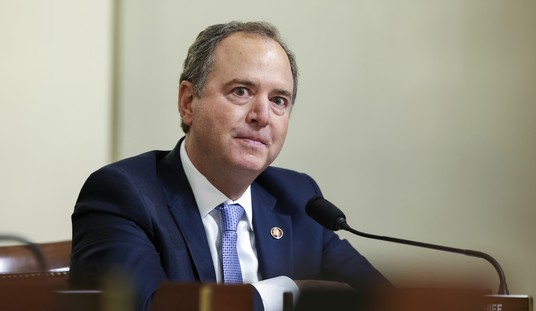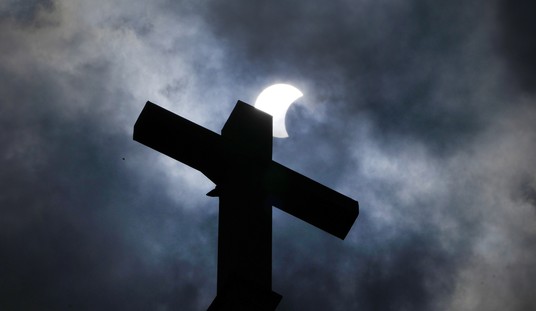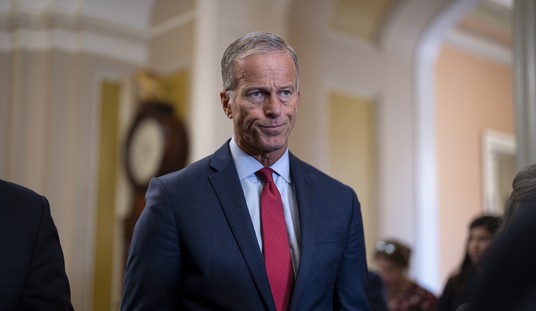Economics is much more akin climatology than to real science. It is larded with theories that are simply not falsifiable, it relies on complex models that can work backwards from a known point but are unable to predict an outcome, and adherence to fads and a good publicist are more important to success than actually being accurate. None of this is to say economics is without use or impact. Without economic theory, the most murderous regimes of the past hundred years would have had to look around for another organizing principle.
Over the past five years we’ve chronicled the Obama regime’s devotion to one particular economic theory: cargo cult economics (here | here | here | here | here | here | here). In short, cargo cult economics is the seizing upon an indicator of a successful outcome (say, a community arts center) and using that factor as a way of creating a successful outcome (by going into the center of a worn our industrial town and building a community arts center as a way of creating a middle class community).
As it turns out this is not a weakness peculiar to Obama. The book that is all the rage on the left is a dense economic tome called Capital in the 21st Century by a French and Marxist economics professor called Thomas Piketty. It epitomizes cargo cult economics well blended with the vice of greed and a disregard for the whole “thou shalt not covet” thing that somebody important once warned us about. It also has a lot of formulas and charts and graphs that make it really compelling the the Vox.com crowd.
Piketty purports to trace the history of the concentration of wealth since the 18th century, which really can’t be done for lack of data and rational points of comparison, and claims that capitalism inevitably produces a divide between those who have capital (capitalists) and those who work for wages (the proletariat)… stop me if you’ve heard this one before.
He not only disdains corporate CEOs he also sees anyone with property or savings as a threat to democracy. From the Wall Street Journal review by Daniel Shuchman:
While America’s corporate executives are his special bête noire, Mr. Piketty is also deeply troubled by the tens of millions of working people—a group he disparagingly calls “petits rentiers”—whose income puts them nowhere near the “one percent” but who still have savings, retirement accounts and other assets. That this very large demographic group will get larger, grow wealthier and pass on assets via inheritance is “a fairly disturbing form of inequality.” He laments that it is difficult to “correct” because it involves a broad segment of the population, not a small elite that is easily demonized.
So what is to be done? Mr. Piketty urges an 80% tax rate on incomes starting at “$500,000 or $1 million.” This is not to raise money for education or to increase unemployment benefits. Quite the contrary, he does not expect such a tax to bring in much revenue, because its purpose is simply “to put an end to such incomes.” [my italics] It will also be necessary to impose a 50%-60% tax rate on incomes as low as $200,000 to develop “the meager US social state.” There must be an annual wealth tax as high as 10% on the largest fortunes and a one-time assessment as high as 20% on much lower levels of existing wealth. He breezily assures us that none of this would reduce economic growth, productivity, entrepreneurship or innovation.
Economist Tyler Cowen has a much more in depth critique of the book at Foreign Affairs but you don’t have to be a genius to see why this book is so popular on the left. It provides a pseudo-intellectual underpinning for requiring the government to tax simply to destroy.
The book rests on several mutually supporting principles:
- Social and economic mobility do not exist.
- Economic expansion does not exist.
- You are allowed to have money and property in the type and the amount the state is willing to allow.
- Being paid according to the values you bring to an organization is unfair.
- People will work just as hard for very little money as a lot of money.
As Kevin Williamson points out, Piketty’s description of income inequality is substantially divorced from what exists in America:
Professor Mark R. Rank of Washington University, co-author of Chasing the American Dream: Understanding What Shapes Our Fortunes, tells a different story in a review of his own and others’ research in last Sunday’s New York Times. Far from having the 21st-century equivalent of an Edwardian class system, the United States is characterized by a great deal of variation in income: More than half of all adult Americans will be at or near the poverty line at some point over the course of their lives; 73 percent will also find themselves in the top 20 percent, and 39 percent will make it into the top 5 percent for at least one year. Perhaps most remarkable, 12 percent of Americans will be in the top 1 percent for at least one year of their working lives.
The top 1 percent, as I have noted here before, is such an unstable group that it makes no sense to write, as so many progressives do, about what has happened to its income over the past ten year or twenty years, because it does not contain the same group of people from year to year. Citing tax scholar Robert Carroll’s examination of IRS records, Professor Rank notes that the turnover among the super-rich (the top 400 taxpayers in any given year) is 98 percent over a decade — that is, just 2 percent of that elusive group remain there for ten years in a row. Among those earning more than $1 million a year, most earned that much for only one year of the nine-year period studied, and only 6 percent earned that much for the entire period.
“Ultimately,” Professor Rank writes, “this information casts serious doubt on the notion of a rigid class structure in the United States based upon income. It suggests that the United States is indeed a land of opportunity, that the American dream is still possible — but that it is also a land of widespread poverty.” Data from the Bureau of Labor Statistics finds that among the allegedly privileged 1 percent, inherited wealth accounts for only 15 percent of household holdings, a smaller share than it does among middle-class families.
Even if Piketty’s worst case scenario played out, the human and societal cost of his prescriptions would far outweigh the perceived advantages. A society that penalizes the successful for no other reason than to cause pain is hardly a society worth creating much less living in. In short, Piketty’s proposal is an exercise in cargo cult economics. He has decided, based on the most illusory of evidence better societies have less concentration of wealth and therefore he can create a better society by destroying existing wealth rather than by taking steps to make the economic environment more favorable.
As Winston Churchill observed:
“The inherent vice of capitalism is the unequal sharing of blessings; the inherent virtue of socialism is the equal sharing of miseries.”
Piketty’s solution to the non-existent problem of wealth inequality would destroy not only wealth but economic mobility and risk taking. It would make us France.















Join the conversation as a VIP Member